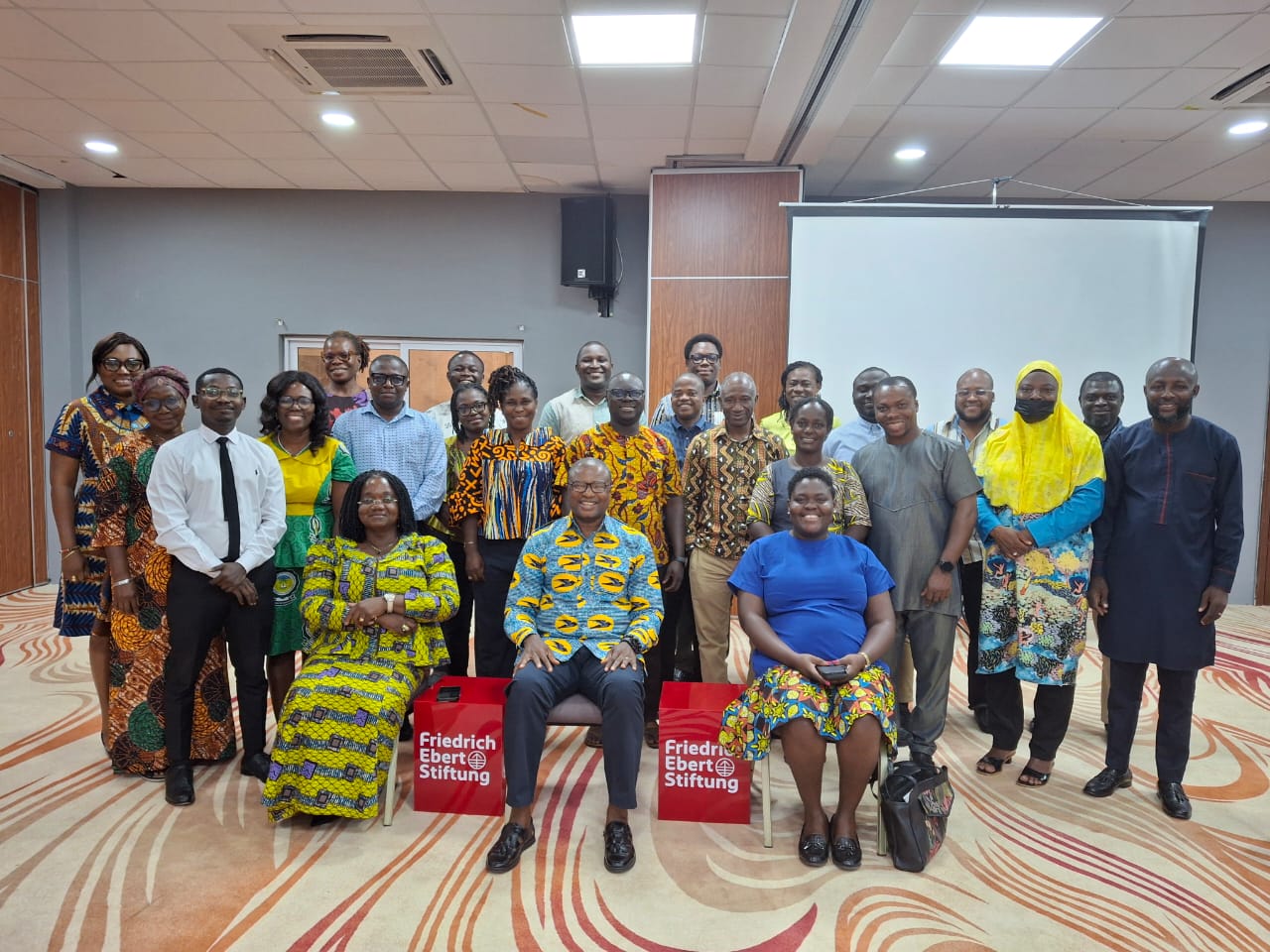On the second and final day of the UESD-FES Stakeholder Conference, the Acting Dean of the School of Sustainable Development at the University of Environment and Sustainable Development (UESD), Prof. Anthony Amoah, made a presentation on the theme, “Sustainable Development in Action: Energy Transition and the Climate Finance Nexus.” His address explored the intricate relationship between climate finance and energy transition, particularly within the context of Sub-Saharan Africa.
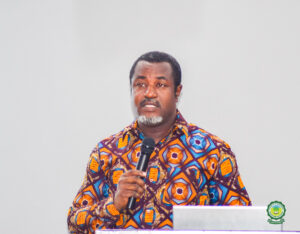
Prof. Amoah raised concerns about the Region’s slow progress in energy transition, attributing this lag to systemic challenges common in developing countries. These include weak institutional frameworks, limited economic capacity, high inequality, slow technology adoption, and vulnerability to extreme climate events. He noted that these barriers diminish the ability of countries like Ghana to attract and effectively utilize climate finance.
Citing his research, Prof. Amoah revealed that countries which received climate finance in the previous year showed no substantial gains in energy transition. Conversely, nations that had already made progress in transitioning their energy systems were more likely to attract climate finance, highlighting a cyclical disadvantage for less advanced countries. He concluded that although climate finance has immense potential, its actual impact is restricted without complementary governance reforms. He stressed that transparency, accountability, and the fight against corruption are essential to ensuring climate finance delivers real change.
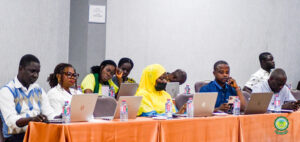
A panel discussion on “Gender, Climate Resilience, and Energy Transition” followed, moderated by Dr. Felicia Annin, Lecturer and Head of the Research, Innovation, and Consultancy Unit at UESD. The session featured distinguished panelists: Dr. Rosemary A. Akolaa of UESD, Mrs. Vida Brewu from the Ghana Mine Workers’ Union (TUC), and Ms. Emelia Ghansah representing the General Agricultural Workers Union (TUC).
The panel challenged conventional views on gender, emphasising that it is a dynamic and evolving social construct, not merely a binary classification. Through a rich and engaging dialogue, they underscored the importance of integrating gender considerations into climate resilience and energy transition policies to ensure inclusive and sustainable outcomes.
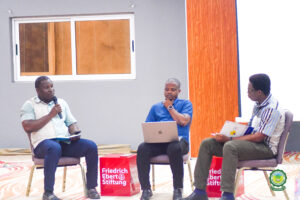
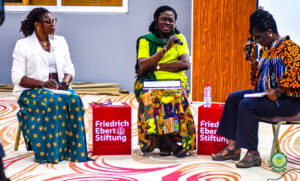
Another key session featured a roundtable on “Aligning National and Local Strategies to Tackle Climate Resilience, Energy Transition, and Sustainable Development,” moderated by Dr. Nuworza Kugbe, Senior Lecturer at the Department of Public Health. Panelists included Mr. Richard Tweneboah-Kodua, Director of Research at the National Development Planning Commission (NDPC), Mr. Daryl Bonsu of A Rocha Ghana, and Mr. Charles Wudengba, Head of Communications at 350 Ghana.
The panelists acknowledged Ghana’s ongoing progress in climate change mitigation, but identified limited funding as a persistent challenge. They called for greater grassroots engagement and public awareness to bridge the gap between national policy and local implementation, urging coordinated efforts across all levels of governance.
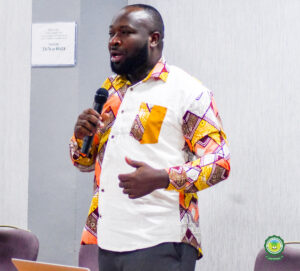
Emerging policy issues were addressed by Dr. Michael Appiah Karikari, a Lecturer at the Department of Sustainable Energy and Resources, who identified priority areas for future policymaking. These included parliamentary oversight on green transitions, integrated climate and energy policy frameworks, carbon financing strategies, public-private carbon credit integration, behavioral change campaigns for energy efficiency, and policies to promote green jobs and skills development.
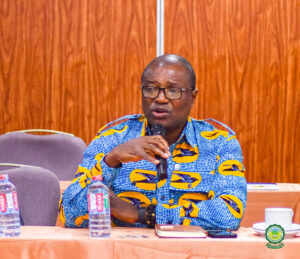
In his closing remarks, Vice-Chancellor, Prof. Eric Nyarko-Sampson, reflected on the rich discussions and insights that emerged from the two-day event. He acknowledged the important roles played by academia, development partners like Friedrich Ebert Stiftung (FES), and civil society in advancing sustainable development.
Prof. Nyarko-Sampson expressed gratitude to the participants, planning committee, and support staff for their contributions. He gave special thanks to Ms. Eunice Asiedu and her team from FES, the University Registrar, Mrs Mary Abena Agyepong and all partners and individuals whose efforts contributed to the success of the conference. He emphasised the need for the outcomes of the conference to go beyond documentation and called for increased visibility, collaboration, and proactive engagement to ensure lasting impact.
By: Eric Smart Anumah

